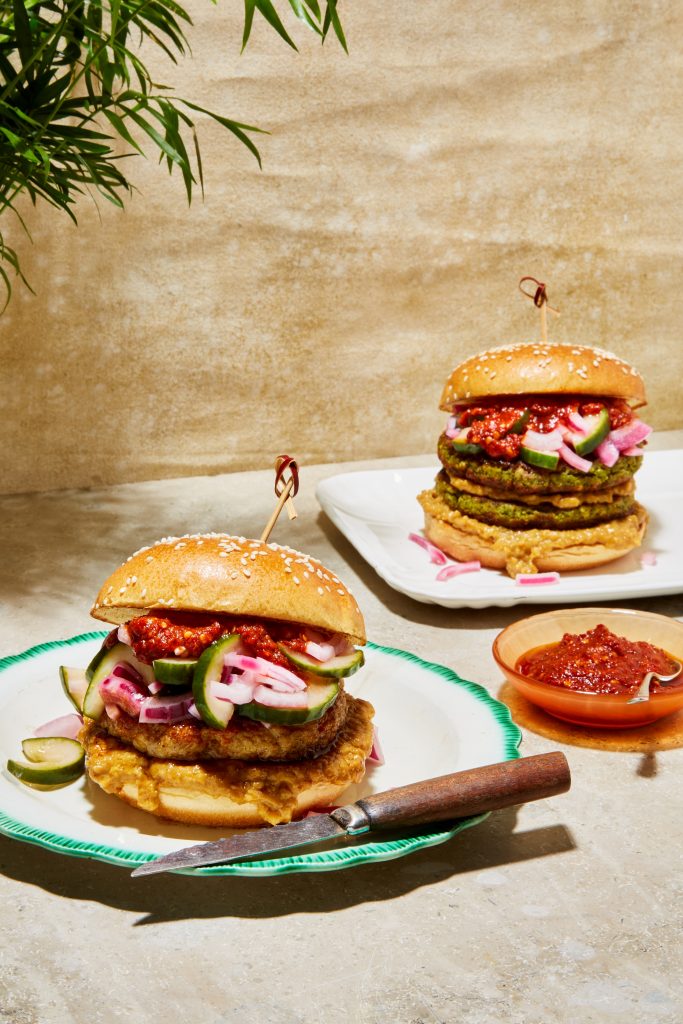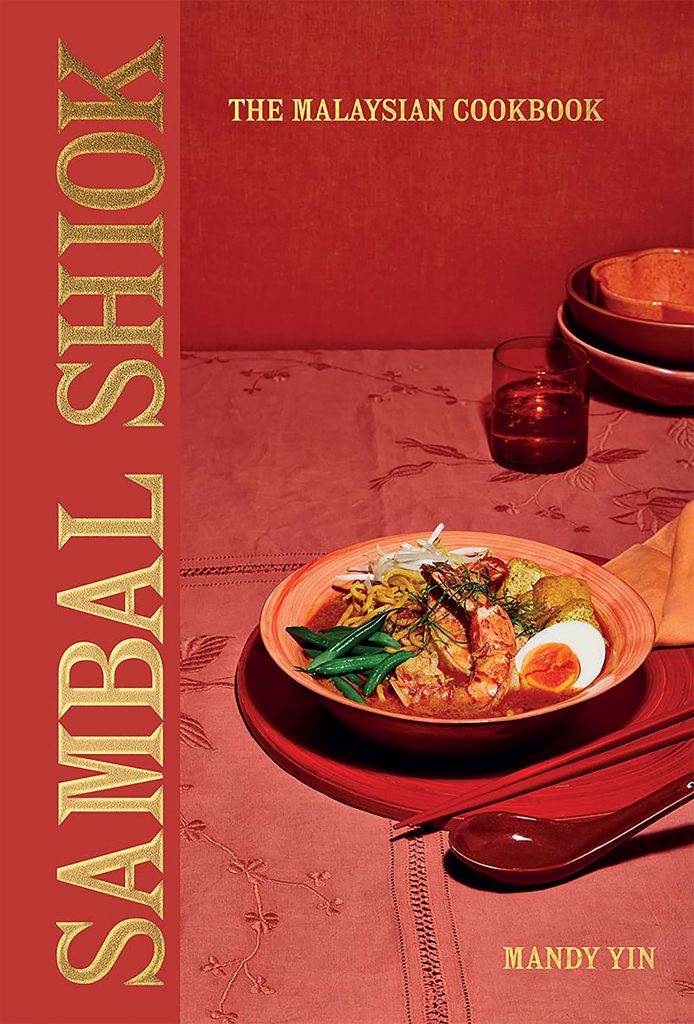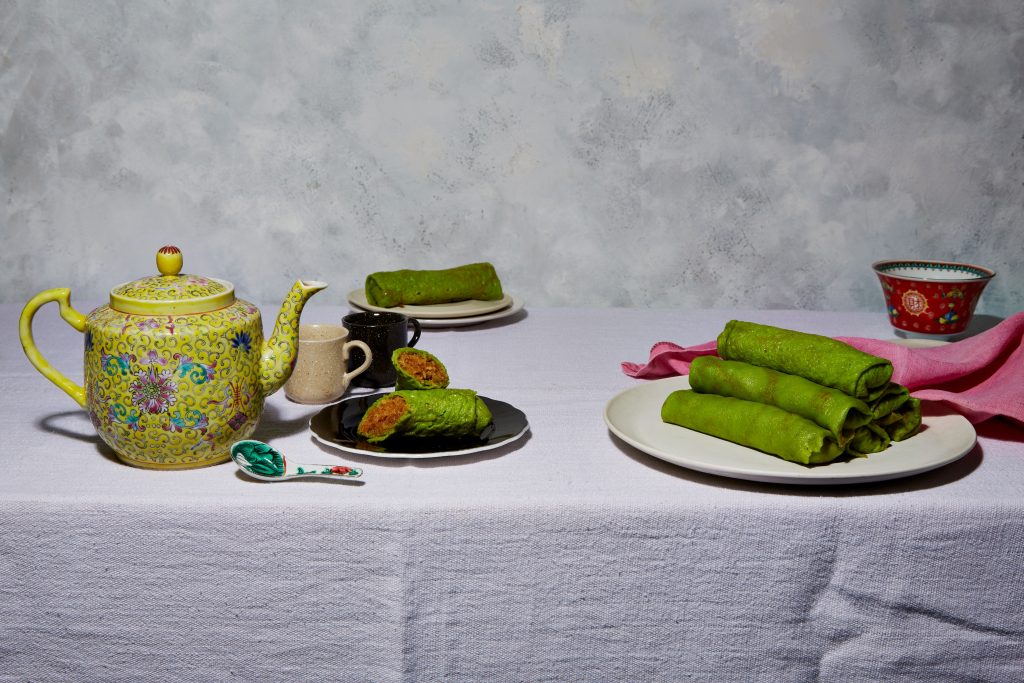
London-based Malaysian Mandy Yin is the chef-proprietor of Sambal Shiok Laksa Bar, one of the hottest Malaysian restaurants in London. Her first cookbook, Sambal Shiok: The Malaysian Cookbook, published by Hardie Grant is heartfelt, authoritative and an “ode to Malaysia”, as Mandy Yin shares with us. Her journey started in 2013 as a humble street food stall owner and her story is one of grit, tenacity and that anything is possible if you’re focused, even if your first step begins small.
Tell us more about your early days and how you ended up doing what you do now?
I grew up in Malaysia. When I was 11, I moved to the UK with my immediate family. Like most Asian children, the career options I could choose from when I turned 18 was to be a doctor, a lawyer, or an accountant.
I wasn’t very good at math and I couldn’t do blood, so, law it was! I practised as a corporate lawyer for nearly a decade. I was good at what I was doing and reached a partnership level. The working hours were long – 80-90 hour work weeks while working in a vacuum for months on end. At the end of it, I burnt out. I took a few months off to reassess what was really important to me. And it was food.
I realized that all of my clients started their businesses from nothing. And why shouldn’t I do the same?
Having worked as a corporate lawyer, I didn’t know how to run a food business, but I knew I could cook. That was how I started in 2013 setting up Sambal Shiok in my early 30s.
At that time, all I knew was that Malaysian food was very much underrepresented in the West in general. My parents asked if I wanted to open a restaurant or to write a cookbook. I decided to start from the ground up as a street food stall because it was a lower capital outlay requirement, and in the early 2010s, the street food scene in London was massive.
How Sambal Shiok started in 2013:
View this post on Instagram
My business approach is simple – crawl, walk, run. Learn from the ground up, figure things out and see how it goes.
As I did market research, I watched all these other market traders at the time and I realized that the most popular stall was always the burger stall because it’s completely portable. People recognize and understand it immediately. So I thought, well, why don’t I come up with a Malaysian burger? And that’s when the Chicken Satay Burger was born.

Launch of Sambal Shiok Laksa Bar
By 2015, Sambal Shiok’s popularity was gaining momentum and this gave Mandy the confidence to evolve the street food stall concept into a pop-up restaurant. Sambal Shiok Laksa Bar was conceived and her signature Laksa was introduced. She took over pubs or cafes when their kitchens were closed for short term periods ranging from six weeks to six months.
One of the first pop-ups we did was for just two weeks at a restaurant owned by a friend of mine. It was at the beginning of January and the weather was terrible! It got dark early and we were worried no one would turn up.
For 15 nights with no reservations and a 30 pax seating capacity, we served over 150 people every night. As soon as that happened, I knew there was something here.
That’s really how I approached the business. Crawl, walk and run. Running the pop-up and street food stall for about five years before opening my full-fledged restaurant allowed me to learn the ropes of running a restaurant. Now, I can do every single job in my restaurant, but that’s no longer my job to do.
You have to start from somewhere and I’d rather try, than not have tried at all. As you get older, you get better at listening to yourself and just go with it.
Running a restaurant is tremendously hard because it’s not just about the cooking. You’ve got to make sure that your product is amazing and consistent – that’s a given fact. It’s also the HR issues, operations, maintenance – these are things which I can’t do on my own. I learned not to be afraid to delegate. I have an amazing team now but that has taken me years of training and making sure they understand how to interpret the recipes, basically the nuts and bolts of the business and execute them well. I built my businesses to be sustainable for myself and my team.
View this post on Instagram
How did the name Sambal Shiok come about? What is the inspiration behind the name?
I love my chillies and sambal. I think it was probably my mom who said like, “Oh, why don’t you use the word shiok because it’s quite a well-known slang word in Malaysia. When I started the street food stall, I used to serve a spicy sambal with the Chicken Satay Burger and it made sense.
In 2016, when I was pursuing the Laksa Bar, I was toying with the idea to change the name. But then, the acclaimed food critic, Jay Rayner from Observer Magazine visited our pop up and reviewed it as a Sambal Shiok. And, so that was that, I couldn’t change the name. It worked out perfectly well too as my regulars and new customers can track my history and our origin story.
Launch of Sambal Shiok Cookbook

The pandemic has been a very traumatic period for me and the restaurant. I had to lay a lot of people off. At the same time, I’d been working hard on this cookbook during the lockdown in 2020 and trying to make the best use of my time.
Writing the cookbook has been a joy. The process gave me such comfort plus it was therapeutic because it allowed me to reconnect with my family roots, revisit and learn about my heritage. I poured all that I have into it and I hope people will understand that it comes from my heart. I’m trying to do the best I can and hope to do us Malaysians proud by showcasing Malaysian flavours to the world.
My dream is to reach out and convince someone, anyone, who is unfamiliar with Malaysian cuisine to know more about its origins and to not be afraid to try making Malaysian food.
Most importantly, I hope to get people travelling to Malaysia to experience the rich food culture that we have.
“The best you can do is to show an authentic vision of yourself.” Tell us more about what you mean by this.
“Authenticity” is a very subjective word, subject to the person using the word. When I say my food is authentic to me, it’s authentic to my food memory growing up in Malaysia, but also it’s to do with the food that I like to eat now, the ingredients I can get here in the UK, and inspirations from my travels in Europe and America.
My food is not traditional and even my Laksa, you can’t find my laksa in Malaysia because it’s a unique recipe. I developed it myself based on my personal preferences. I love pedas (spiciness) and my recipe is a laksa campur (to combine) based on a version I’ve had in Malacca incorporating the Penang Assam Laksa with the Kuala Lumpur curry laksa.
View this post on Instagram
What are some Asian cooking myths you wish to dispel?
That you need artificial MSG for Malaysian recipes. I don’t think our cooking needs articial MSG, because ingredients like Belachan is already so flavourful. It is so punchy. My restaurant doesn’t use articifial MSG, and that’s just my personal preference.
Malaysian food is too challenging to cook. A lot of Malaysian recipes, like laksa, is a very involved recipe because it has a lot of ingredients. However, the method and the process is so simple once you get started.
That’s why I included all of my mother’s home-style basic recipes for people to start with. There’s even a tutorial as simple as “how to steam rice in a saucepan” using the finger measurement method. I discovered that basic cooking skills garnered the most engagement during my live cook-along online event at the beginning of the pandemic!
Nasi Goreng Kampung Recipe from Sambal Shiok: The Malaysian Cookbook
Mandy’s top places to eat when she is back in Kuala Lumpur
ICC Pudu Market for breakfast – kaya toast, half boiled egg
Hutong, Lot 10, Bukit Bintang – Penang Char Kuey Teow with duck egg and Ais Kacang
Meng Kee, Jalan Alor – Butter Prawns and Kam Heong Crabs
SS2 Night Market – various street foods, Assam Laksa
Loong Seng Dim Sum, SS2 – assorted traditional dim sum
2021 and beyond…
How has 2021 been for you and what’s next for Sambal Shiok?
2021 is not hard to be better than 2020. I am rebuilding my brands and my team, and this cookbook is out now! I’m also expecting a baby very imminently (Mandy is eight months pregnant at the time we spoke for this interview)
I hope to see many more like myself flying the flag in leading the way, reaching out to more Western audiences about our homegrown food. People travel more these days and are exposed to diverse, strong, punchy flavours. At Sambal Shiok Laksa Bar, I’ve never had to water down my recipes, I’ve just made them exactly like how I would want to eat them, which is very encouraging!
I do hope to grow the business across the UK. That’s the dream, but nothing is concrete at the moment. Well, let’s have this actual baby first and I will come back next year, raring to go.

Sambal Shiok: The Malaysian Cookbook is available at:
Singapore
Littered With Books Pte Ltd, Times Experience Pte Ltd (Waterway Pt), Times Experience Pte Ltd (Jelita), Kinokuniya Bookstores – Orchard Road Branch, Jurong & Bugis Junction, Kinokuniya Bookstores -for The Singapore National Library
Malaysia
Kinokuniya Bookstore, KLCC
APD Book Services Sdn Bhd (SGD)
Thailand
Kinokuniya Bookstore
This interview has been edited for clarity and length. Interview and written by Theri B. Edited by Lim Aileen.









